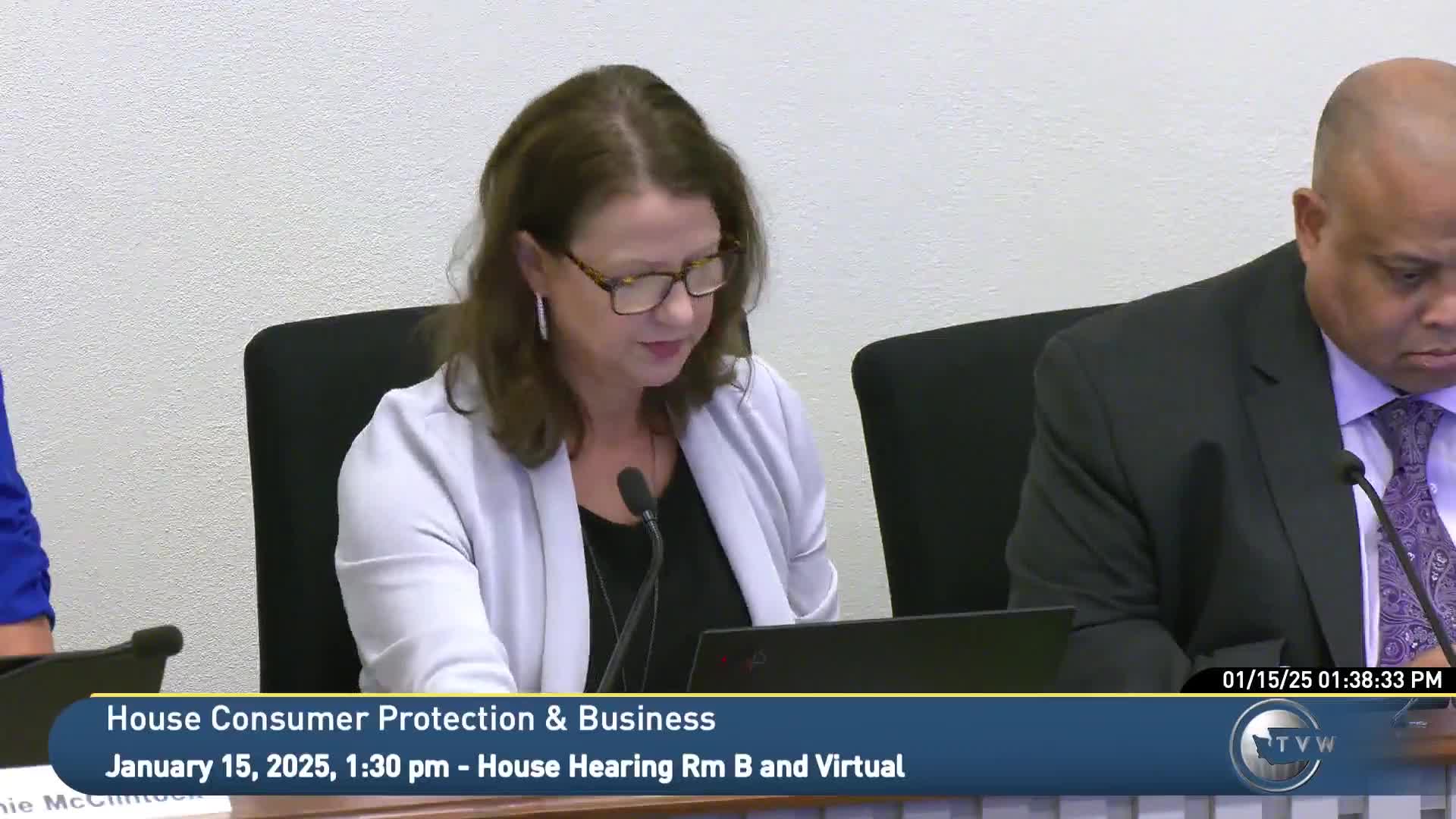Committee hears bill to expand protections against unwanted calls and texts; industry seeks exemptions
Get AI-powered insights, summaries, and transcripts
Subscribe
Summary
House Bill 1103 would broaden Washington’s telephone and commercial electronic messaging laws to cover businesses and prohibit sending texts to numbers on the federal Do Not Call Registry; witnesses urged carveouts for established business relationships and alignment with federal law.
The Consumer Protection & Business Committee held a public hearing Wednesday on House Bill 1103, a measure that would expand state protections against unsolicited telephone calls and electronic text messages and bar sending texts to Washington telephone numbers listed on the federal Do Not Call Registry. Committee staff summarized statutory changes and Representative Clyde Shavers, the bill’s prime sponsor, called the measure a step to protect Washingtonians’ privacy.
What the bill would change: staff told the committee HB1103 would (1) add a broad definition of “persons” to the Telephone Solicitation Act so protections apply to individuals and business entities, (2) narrow the business‑to‑business exemption so it applies only where the purchaser intends to resell goods or use them in manufacturing/recycling processes, (3) align definitions under the Commercial Electronic Mail Act so commercial electronic mail and commercial electronic text message follow the Telephone Solicitation Act definitions, and (4) bar anyone from initiating or assisting in transmitting an electronic text message to a Washington telephone number on the federal Do Not Call Registry.
Sponsor framing and questions: Representative Clyde Shavers said the bill is intended to “safeguard the privacy, the dignity, and the peace of mind of every Washingtonian,” and to close loopholes that allow unwanted messaging and misrepresentation that can lead to fraud. He told members he is meeting with industry and agency stakeholders and anticipates amendments to balance consumer protections with business needs. Members asked about how data brokers, web scraping and AI affect targeting; Shavers acknowledged technological and jurisdictional limits and said those topics may require follow‑on legislation.
Enforcement and exemptions: staff and the sponsor discussed enforcement mechanics; during questions Representative Santos asked whether enforcement would be limited to the attorney general and the sponsor replied, “That’s correct.” Multiple industry witnesses asked the committee to add or clarify carveouts for established business relationships and other routine communications (for example, appointment or payment reminders) to avoid disrupting legitimate communications.
Industry testimony: witnesses included CTIA (wireless industry trade association), the Association of Washington Business, and the Receivables Management Association International (RMAI). CTIA said it supports the bill’s intent but urged language changes to ensure compliance with the federal Telephone Consumer Protection Act and to clarify the definition of commercial text messages; CTIA also highlighted industry standards such as SHAKEN/STIR for call authentication. RMAI and other trade groups asked for an express exemption for established business relationships so that lenders, debt collectors, medical providers and others can deliver required appointment or payment reminders to customers who have an existing relationship and/or have opted in.
What’s next: the public hearing closed without a vote. The sponsor indicated an intent to work on amendments to address industry concerns while preserving privacy protections.
